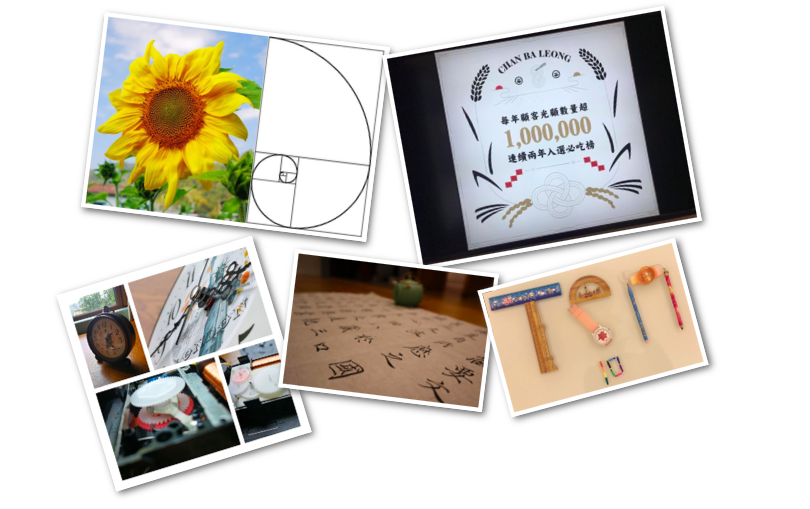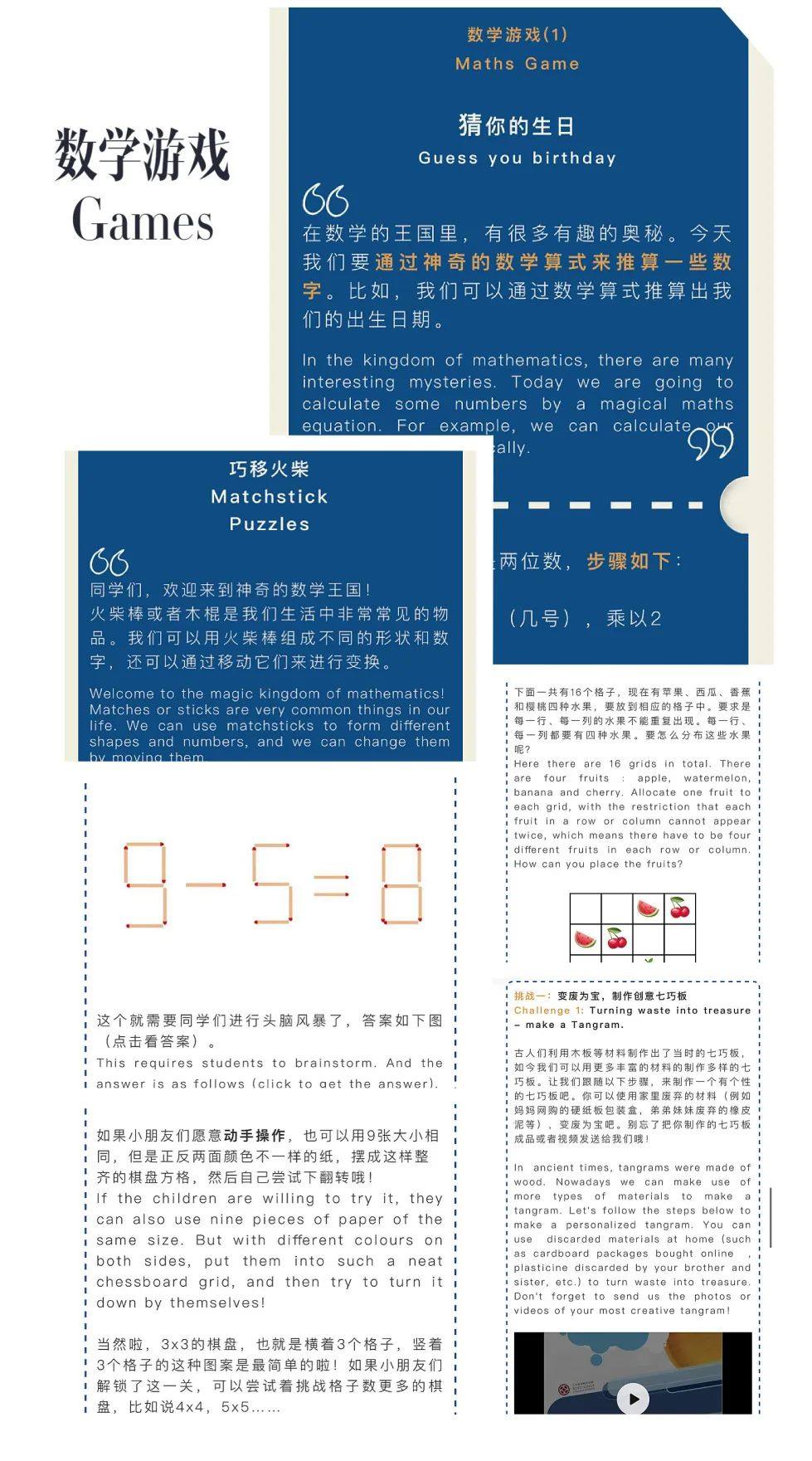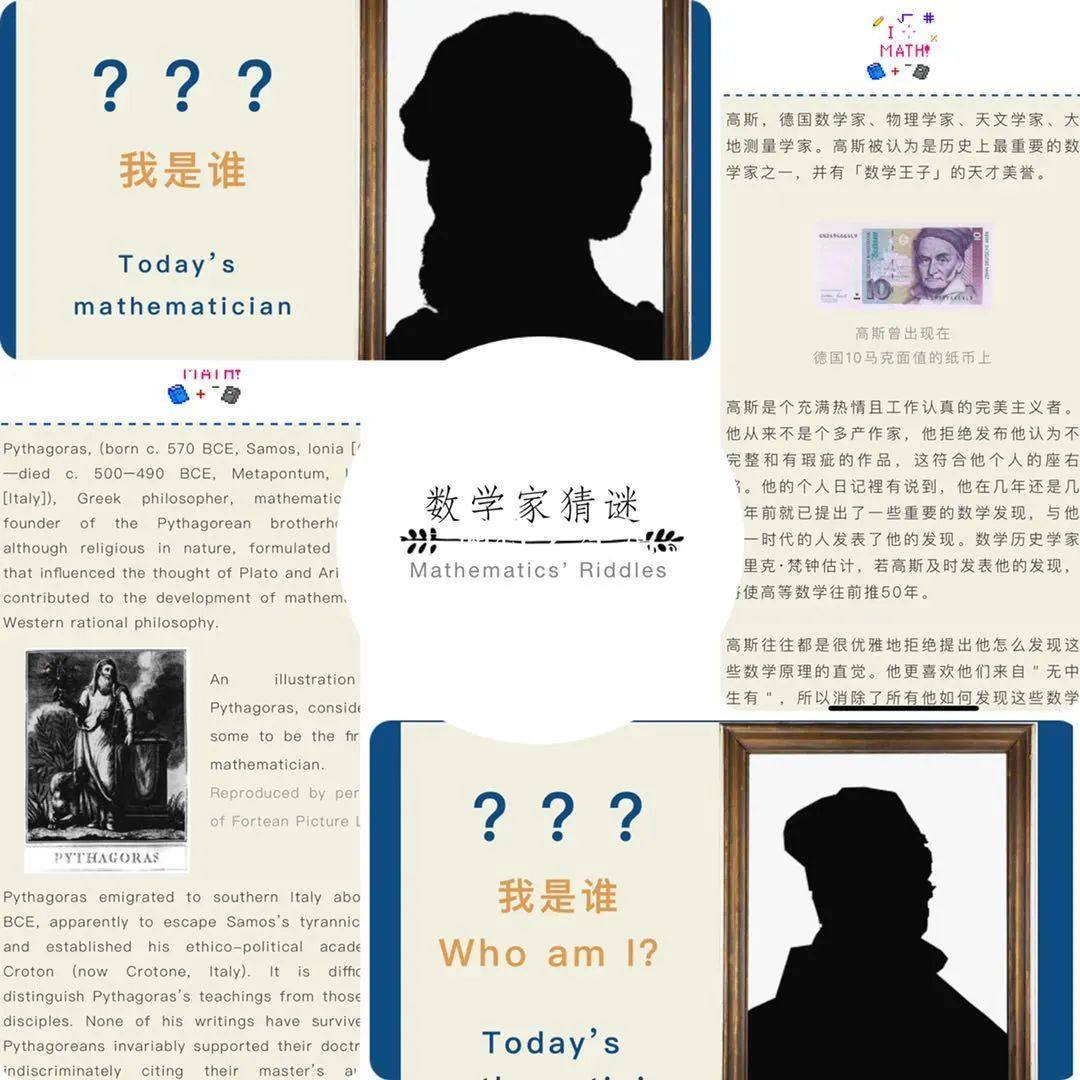



When we decided to hold a Maths Week, our school’s online learning had been going on for three weeks. During this period of time, teachers had to develop various ICT skills, such as editing videos and how to use Microsoft Teams which we chose to be the platform for live lessons. While we were adjusting our teaching from classrooms to internet, we were also trying to figure out how to make these online lessons more beneficial to our students.
According to Jerome Bruner’s constructivist theory, most students’ performance will be quite close in terms of learning ability, efficiency and motivation, if they are put in the same learning environment. His theory of instruction addresses four major aspects:
1. predisposition towards learning
2. the ways in which a body of knowledge can be structured so that it can be more readily grasped by the learner
3. the most effective sequence in which to present material
4. the nature and pacing of rewards and punishments.
We could say that our Maths teachers are following exactly the same set of rules in our daily practice of teaching: student-centred, scaffolding, differentiation and hands-on activities as appropriately as we could. However, for the online teaching and learning, we are aware of the following possible problems:
1. Participation from the students cannot be monitored and responded to promptly
2. Lack of concentration
3. Limit to communication
4. Home-school contact
For these problems foreseen or encountered already by some teachers, firstly, the School arranged a strategy of recording lessons and broadcasting for different grades. For example, the lower grades mainly have recorded lessons, while the senior grades were also given broadcasting lessons twice a week, mainly for the teacher to answer common mistakes made by students. In view of the short attention and concentration, we also adjusted the lesson duration according to the feedback from parents in the early stage of online teaching, so that the knowledge content and pace of each lesson were more suitable for online learning. We have also insisted on differentiation in teaching and tasks given, with more hands-on activities at home. Since teachers now have relatively more time to prepare for lessons, materials are well prepared. In terms of home-school contact, school and subject teachers who are also tutors have been keeping in touch with parents through emails.
In the meantime, we are also holding various activities related to Maths, including organising students to participate in Caribou Contests, and the online Maths Week which just ended this weekend. The Online Maths Week includes a photo contest with math elements, daily posted on the School’s official account featuring a well prepared Maths game and mathematicians’ puzzles, aiming to increase students’ interest in Maths, and, as mentioned at the beginning of the article, “give mathematics a real chance.”
We don’t know exactly what “real chances for maths” are. For students with unique personalities and talents, we believe, as long as we take their mental and physical growth, their intellectual enlightenment and character forming to the centre of our teaching, we are “giving mathematics a real chance”, as we are trying to enrich their soul, enhance their skills and interest in the world, and improve their ability to solve problems.
In the context of the outbreak of this epidemic, our teachers are learning new skills, exploring new teaching methods. If we are role modelling for our students, setting examples of “lifelong learners”, then probably we are offering “a real opportunity for education”!




 浙公网安备 33011002014773号
浙公网安备 33011002014773号